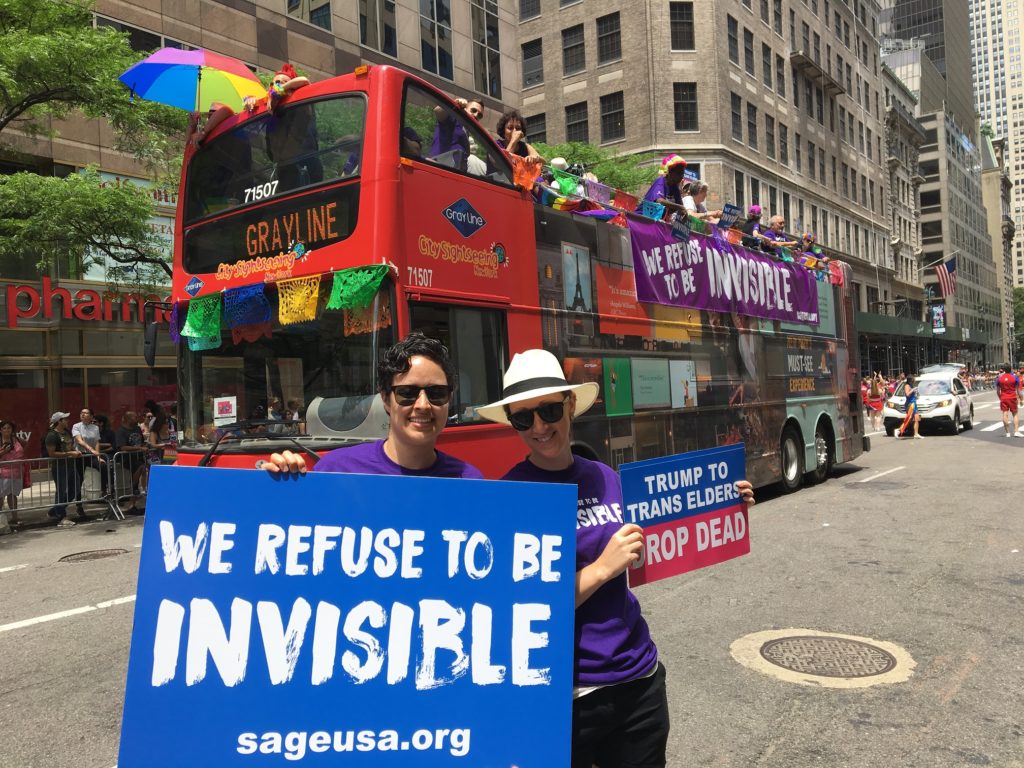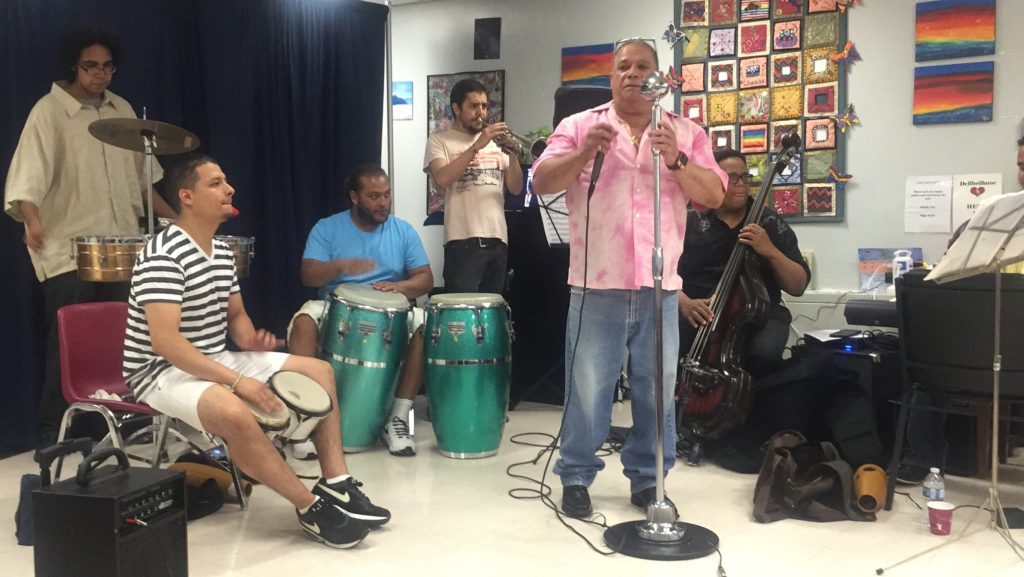We’re continuing our Pride Month series of interviews with staff from SAGE || Advocacy and Services for LGBT Elders. Today, we’re talking with Karalin Sprague, Manager of Lifelong Learning. Kara tells us about the exciting programming for LGBTQ older adults and allies happening at SAGE Centers around the city, and the most moving moments from Pride Month 2017.
What is your role with SAGE?
I’m the Manager of Lifelong Learning, which means that I oversee all of the programming related to art, culture, education, socialization and technology across SAGE’s five New York City sites. I have a bird’s eye view of our programs across the city, so I make sure that each center has what it needs to serve the LGBT elders in the community. I work with all of our sites to develop new programs, and I evaluate our programs to make sure they’re working for the participants. We want all of our participants to have access to the things that contribute to a healthy, active life.

Kara (right) at the 2017 Pride March in Manhattan.
What does Pride Month mean to you?
This is easily SAGE’s busiest time of year. All of our participants celebrate Pride Month, so it feels like a very unifying event. We are involved in all of the Pride events across the five boroughs of NYC, and we hold a number of Pride Month parties, dances, and events at the SAGE Centers.
I love going to the Harlem Pride Party every year, which is held at Union Theological Seminary. It is SO much fun, and it draws huge crowds from all over the city. The event features a dance party, but there’s also time for reflection: a moment of silence to recognize those who we’ve lost, discussion about what has been happening in our communities throughout the year. It feels like a good encapsulation of everything that Pride should mean.
This past Sunday’s Pride March in Manhattan was my first time ever marching with SAGE, and I was so moved by the crowd’s reaction to the SAGE bus. I cried so many times! We would reach a new batch of people along the route, and I would see the crowd react, cheering and clapping and acknowledging that the people on the bus made it possible for us to be celebrating our LGBT identities in public. It was really powerful.
Why did you decide to become an aging advocate?
I had a bit of crisis of conscience after working in international development for many years: what does it mean for the western world to be inserting itself into the rest of the world in this way? I wanted to come back to my community – both my physical community in New York and my LGBT community.
Aside from those personal motivations, I recognized that LGBT older adults are among the most vulnerable and the most overlooked, especially in our youth-driven culture. When you walk into a SAGE Center or meet with SAGE staff, it just feels right. The people who work here are so deeply committed. It feels like you can see immediate impact sometimes: someone who comes to our center for the first time may be in need of a wide range of services, and a few weeks later they’ve been working with a case manager, they’re taking an exercise class, they’re getting food from the food pantry. I know we’re making a difference.

Community musicians perform at a 2016 SAGE Bronx Pride party.
Are there any exciting new programs or changes coming to the SAGE Centers?
We have so much coming up! Both the Bronx and Brooklyn communities in SAGE’s new housing initiative will have a SAGE Center on the first floor, and that will be a new for us.
As for existing SAGE Centers, our calendars are changing every month. We don’t have the same programming at each site: the clients and the cultures are different in each community, and we try to meet their needs with the programs we offer.
What is the most pressing concern facing LGBT elders, and how can our readers help?
Visibility. Older adults are not the face of the LGBT community. I attend so many panels and conferences on the issues affecting the LGBT communities, and the presenters seem to be young person after young person after young person. That’s not to say that their voices aren’t valuable, or that the issues they’re addressing aren’t important – but we need to ensure that older adults are centered in this work and have a voice in the LGBT movement.
This interview has been condensed and edited.
The opinions expressed in this article are those of the author and do not necessarily reflect those of the Diverse Elders Coalition.

